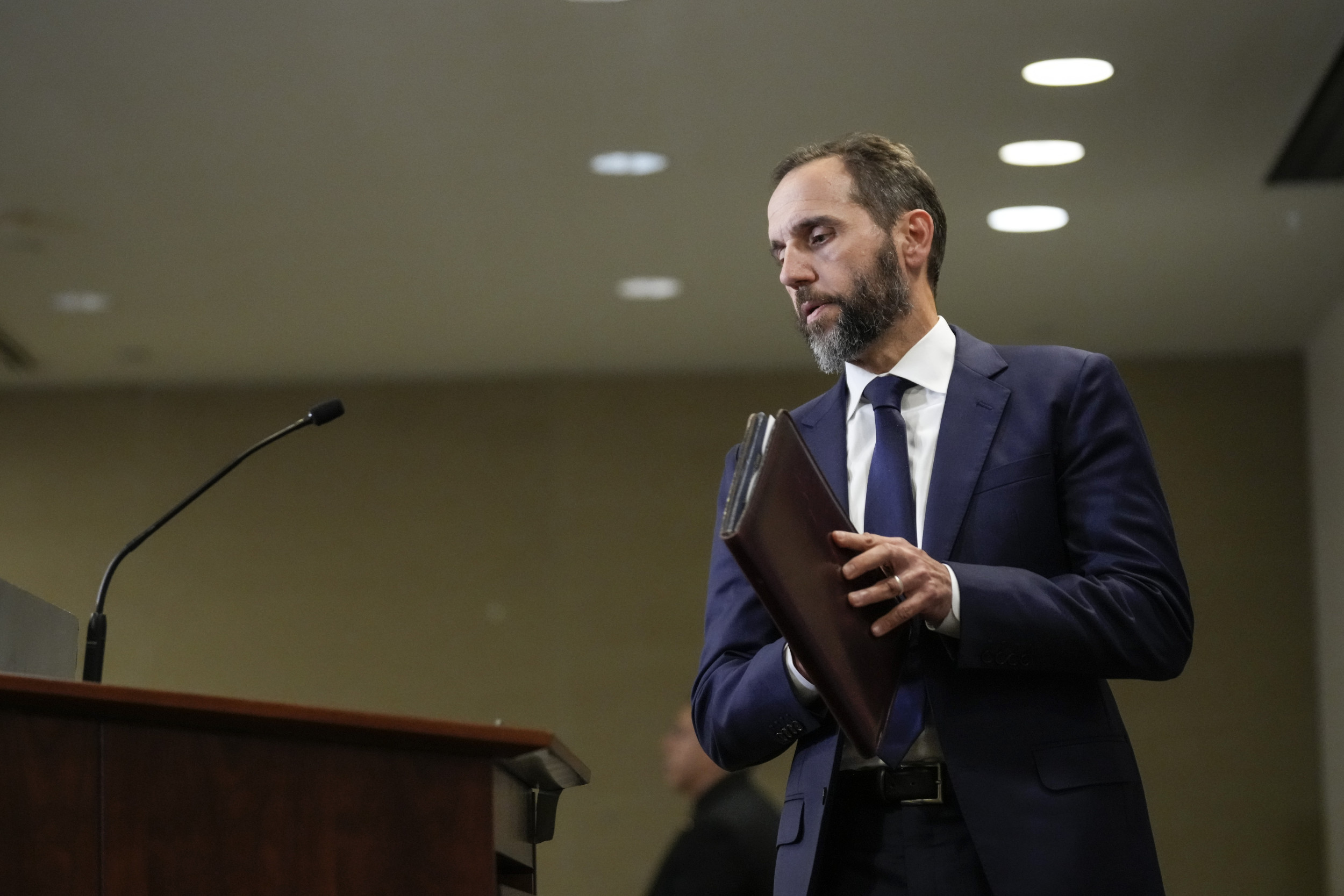Legal experts are voicing their disagreement with a Harvard Law professor’s call for special counsel Jack Smith to justify his approach in the federal election subversion case against Donald Trump.
Professor Jack Goldsmith, who previously served as an assistant U.S. attorney during the Bush administration, accused Smith and the Department of Justice (DOJ) of damaging the public’s trust in fair and impartial prosecutions in an October 9 opinion piece for The New York Times.
Goldsmith asserted that Smith, who also prosecuted Trump over classified documents, had “failed” to maintain public assurance of compliance with relevant legal standards.
Referring to a recently unsealed brief that outlines evidence of Trump’s attempts to overturn the 2020 election results, Goldsmith claimed that Smith had violated the DOJ’s informal “60-day rule,” which discourages significant actions that could sway an election close to voting day.

Drew Angerer
“It’s hard to see another motive for proceeding this close to the election other than to influence it—a potential violation of department policy,” Goldsmith wrote. He insisted that the DOJ needed to clarify why this assumption was incorrect and why its actions aligned with past practices.
Goldsmith added that Smith had created a questionable appearance of impropriety without providing necessary explanations, underscoring the importance of public trust in his decision-making.
The professor further contended that this instance was not isolated, as Smith has previously appeared to overlook important DOJ guidelines, especially when seeking expedited rulings regarding Trump’s claims of presidential immunity.
However, in a rebuttal published by Just Security, legal analysts Andrew Weissmann and Ryan Goodman argued that Goldsmith’s critique overlooks essential facts.
They pointed out that Smith had cited established case law regarding speedy trials when requesting an efficient resolution for Trump’s case. Moreover, they clarified that Smith was instructed to file his brief before the election by U.S. District Judge Tanya Chutkan, not because he requested it.
“Goldsmith doesn’t mention any of this and fails to clarify how he deduced Smith’s intent was to breach the DOJ Manual,” Weissmann and Goodman asserted.
The analysts challenged Goldsmith’s claims about violating the 60-day rule, stating that such conclusions are based on a false premise; the unwritten policy does not apply to individuals already charged with offenses, like Trump.
Additionally, Weissmann and Goodman noted that Goldsmith had previously acknowledged that attorneys general possess significant discretion to disregard internal DOJ guidelines, especially when information critical of political candidates gets released, as happened under Attorney General Bill Barr in 2020.
“This could explain why Goldsmith’s critique also includes an indirect jab at Vice President Kamala Harris, placing her alongside Smith as contributing to the erosion of trust in our justice system,” they stated.
In summary, they concluded that arriving at the critics’ conclusions requires a far-fetched conspiracy theory about the Justice Department, extending beyond just Smith himself. They cautioned against losing sight of the larger context.
